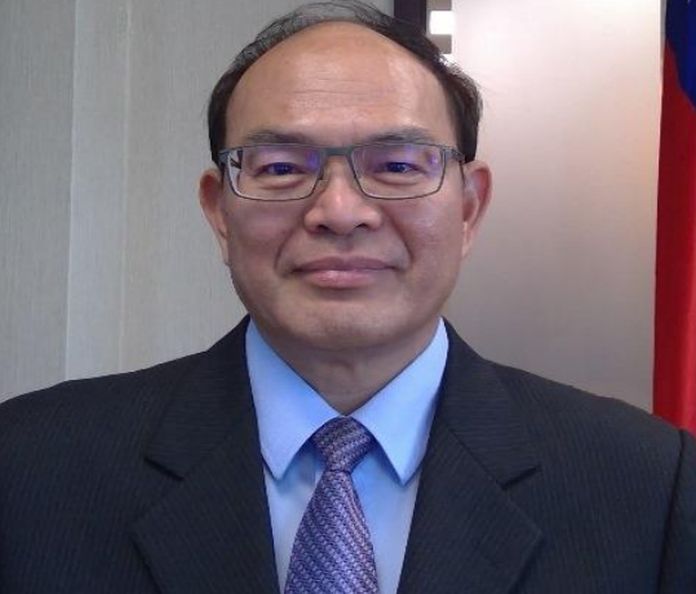By Dr Harry Tseng
Artificial Intelligence (AI) stands as the impetus behind today’s technological progress, prompting countries to vie in formulating their AI strategies to uphold a competitive advantage. All attention converged on COMPUTEX 2024 in Taipei, where prominent technology companies such as NVIDIA, AMD, Arm Holdings, Intel, and Qualcomm convened under the theme “Connecting AI.” The enthusiasm for an era driven by generative AI was palpable, with industry leaders, including NVIDIA’s Jensen Huang, looking toward Taiwan for the future of AI innovation.
Huang, the Taiwanese-born founder and CEO of NVIDIA, gathered widespread attention at this year’s COMPUTEX with the “Jensanity” phenomenon. NVIDIA’s market value has surged to $3.04 trillion, surpassing Apple in the S&P 500 and closely trailing Microsoft. Huang attributed NVIDIA’s AI dominance to the exceptional system makers in Taiwan who contribute to the construction and marketing of its system. He emphasized his reliance on Taiwanese partners in establishing the global AI infrastructure and pledged to continue harnessing Taiwan’s strength for further advancements. Huang views Taiwan’s ascent in the era of AI as an established reality.
Taiwan’s transformation as an “AI island” is a deliberate outcome, underscoring Taiwanese enterprises’ strategic foresight and adaptability within the rapidly evolving AI domain. At the AI Era Dialogue, Lisa Su, CEO of AMD and a native of Taiwan, accentuated Taiwan’s eminence in computing and highlighted the significance of engaging with technology frontrunners such as Taiwan Semiconductor Manufacturing Company (TSMC). According to Su, Taiwan’s unparalleled ecosystem for fostering cutting-edge developments is indispensable for AMD’s sustained success.
A new era driven by AI is unfolding before our eyes. As Su puts it, we are only at the dawn of an AI megacycle expected to endure for at least another decade. In 2016, NVIDIA introduced the world’s first AI supercomputer, DGX-1, to OpenAI. Moving forward to 2022, OpenAI unveiled ChatGPT, which was trained using tens of thousands of NVIDIA GPUs within a substantial AI supercomputer. The emergence of AI has facilitated the conceptualization of a simulated twin Earth aimed at enhancing our comprehension of climate change and managing natural disasters. The potential of AI has opened the door to a myriad of groundbreaking prospects.
During this significant period of transformation, international collaboration stands as a key driver in propelling the global AI landscape forward. In June 2023, notable entities such as NVIDIA, Oracle, and Salesforce partook in a substantial $270 million funding round for Cohere, a Toronto-based Canadian AI startup. This was followed by a subsequent increase in investment in 2024, with NVIDIA and Salesforce participating in a $450 million funding round. Cohere’s groundbreaking contributions to generative AI have prompted this significant investment, intending to enrich its global services. The establishment of NVIDIA’s Toronto-based research lab, helmed by a University of Toronto professor, further underscores the company’s vested interest in Canada.
Canada’s Indo-Pacific Strategy has delineated an ambitious trajectory for Canada-Taiwan cooperation, with technology emerging as a pivotal domain for fostering deeper ties. Therefore, by spotlighting Taiwan as a hub for AI development, NVIDIA has paved the way for a synergistic partnership that leverages the strengths of both nations, evincing the potential to transform lives positively. Taiwan’s proficiency in AI, robust infrastructure, and leading semiconductor industry collectively furnish an enriching ground for Canadian enterprises to foster innovation and expansion. In reciprocity, Canada’s expansive talent pool and software prowess are paramount in realizing AI’s full potential. The augmentation of data, extensive networks, and advanced supercomputing technologies present the opportunity to revolutionize operational efficiencies.
With Taiwan emerging as a prominent AI center, the global community can anticipate significant contributions from Taiwan beyond its production of smart chips. In a time of turbulence, where peace and prosperity face threats from pandemics, regional conflicts, and geopolitical tensions, Taiwan remains steadfast in its dedication to democracy, innovation, the free market, and hard work. Taiwan has evolved into a technology-driven, high-income economic marvel despite its limited land and resources. It plays a crucial role in bolstering the resilience of global supply chains and is firmly committed to upholding the liberal rules-based international order. Taiwan is poised to present the next compelling narrative in AI. It continues to astonish as a force for good.
In the words of Jensen Huang, “Taiwan is the unsung hero and steadfast pillar of the world.” For too long, it wasn’t apparent to many that a location often considered among the most perilous globally is also where the world will witness its bright future. The reality is that the more advanced Taiwan becomes, the more prosperous the Indo-Pacific region will be, benefiting all Canadians.
The future of AI is promising for both Taiwan and Canada. Taiwan stands as Canada’s capable, reliable, and benevolent partner. Let us capitalize on the opportunities available and reap the benefits of AI together.

